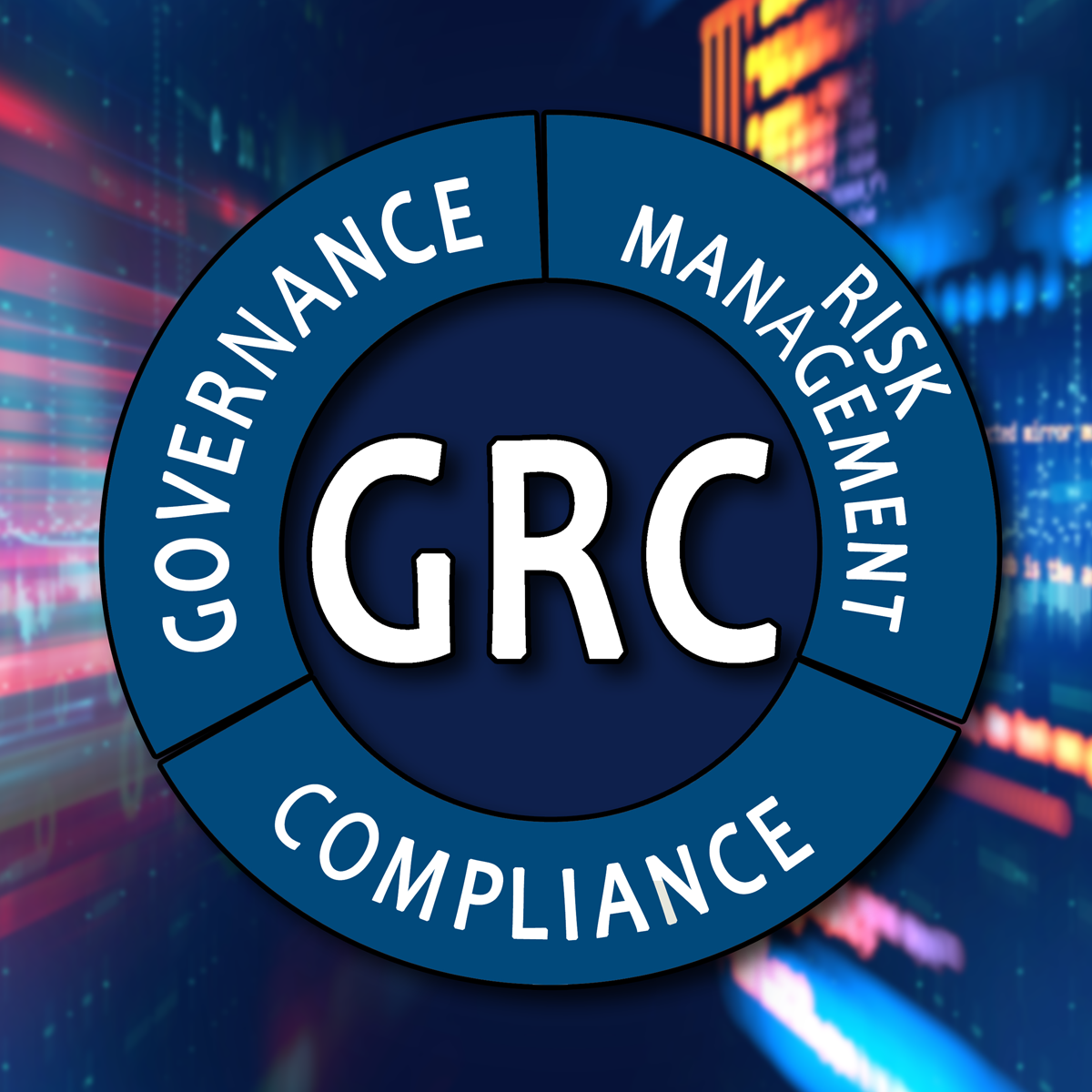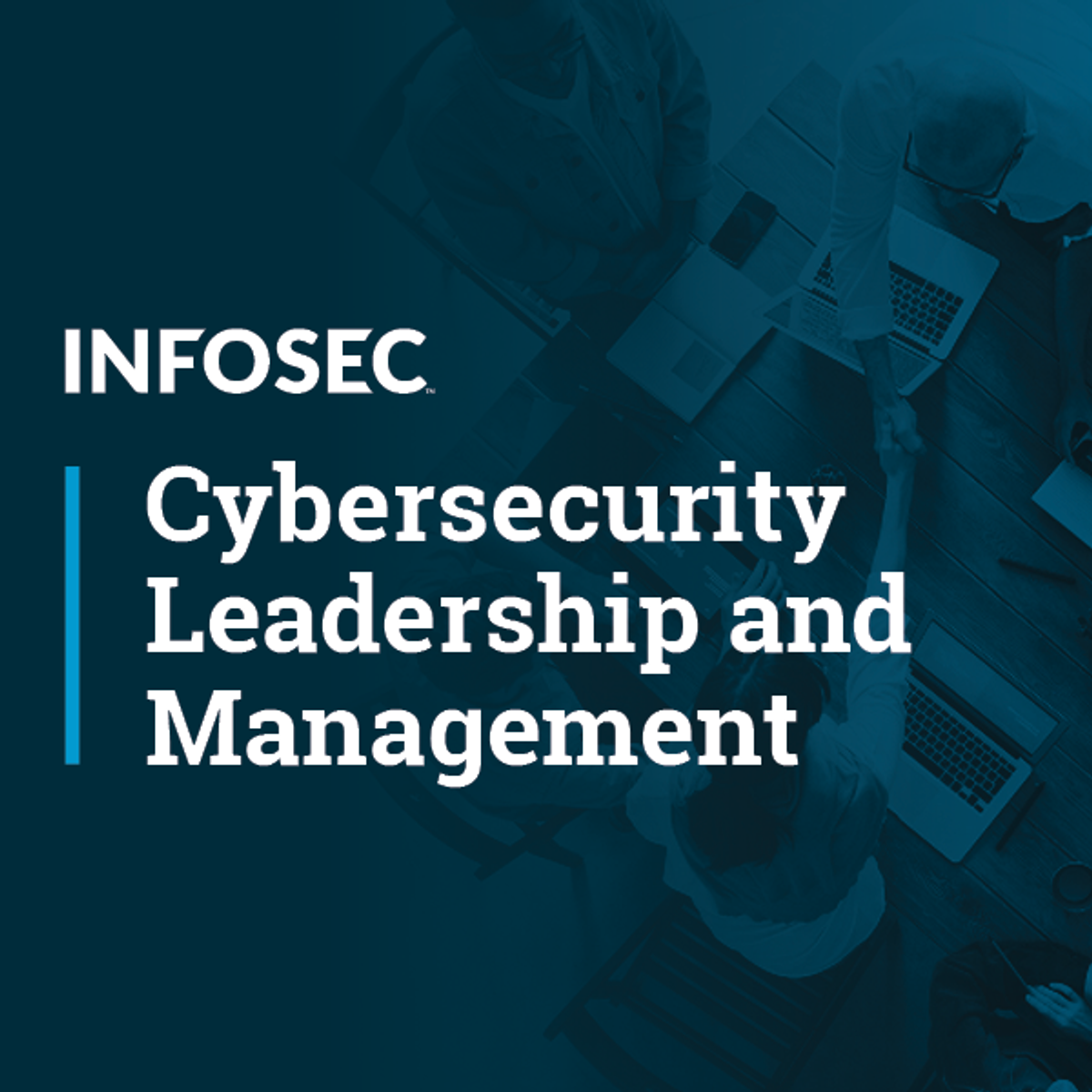Information Security Manager
Information Security Manager: A Career Guide
An Information Security Manager plays a pivotal role in safeguarding an organization's valuable digital assets. This position involves overseeing the comprehensive security program designed to protect computer networks, systems, and sensitive data from unauthorized access, cyber threats, and breaches. The core mission is to ensure the confidentiality, integrity, and availability—often referred to as the CIA triad—of the organization's information.
Working as an Information Security Manager offers the engaging challenge of operating at the intersection of technology and business strategy. Professionals in this field are tasked with developing robust defenses, responding decisively to security incidents, and fostering a security-conscious culture within the organization. Given the increasing frequency and sophistication of cyber threats, the demand for skilled Information Security Managers is exceptionally high, making it a dynamic and rewarding career path.
Role Overview and Core Responsibilities
Understanding the scope and duties of an Information Security Manager is the first step in exploring this career path. This section details the fundamental aspects of the role, from its core purpose to daily tasks and interactions within the organization.
Defining the Information Security Manager
The Information Security Manager is fundamentally responsible for the cybersecurity posture of an organization, program, or specific system. Their primary goal is to protect digital and sometimes physical information assets from a wide range of threats. This involves not just implementing technical controls, but also developing strategies that align security efforts with the overall business objectives.
This role acts as a crucial bridge between the technical teams implementing security measures and the senior leadership setting organizational direction. They translate complex technical risks into business impacts and advocate for the resources needed to maintain a strong security posture. They oversee the entire security program, ensuring it operates effectively and adapts to the evolving threat landscape.
Effective security management requires a blend of technical knowledge, strategic thinking, and leadership ability. The manager must understand the technology they are protecting, the business context it operates within, and how to lead a team to achieve security goals.
Understanding the core principles of information security is foundational. These courses offer insights into security management and governance.
Key concepts underpin the work of an Information Security Manager.
Key Day-to-Day Responsibilities
A significant portion of the Information Security Manager's time is dedicated to risk management. This involves conducting regular assessments to identify vulnerabilities and potential threats to the organization's assets. Based on these assessments, they develop and implement strategies to mitigate risks, which might include deploying new security controls or refining existing ones.
Developing, implementing, and maintaining information security policies and procedures is another core function. These documents outline the rules and guidelines for protecting information and ensuring compliance with regulations. The manager ensures these policies are communicated effectively and consistently enforced across the organization.
When security incidents occur, the Information Security Manager takes the lead in the response effort. This includes coordinating the team to contain the threat, investigating the root cause, managing the recovery process, and documenting the event for post-incident analysis. They also oversee ongoing monitoring of security systems and conduct periodic audits to ensure controls are effective and compliance requirements are met.
These courses delve into risk management frameworks and implementation, which are central to the manager's responsibilities.
Understanding risk management standards is critical.
Aligning Security with the Organization
An Information Security Manager must ensure that the security strategy directly supports and enables the organization's broader business goals. Security should not be seen as merely a cost center but as a vital component of business resilience and trustworthiness. This involves understanding the organization's mission, objectives, and critical functions.
A key responsibility is communicating the organization's risk levels and security posture to senior management, including executives like the Chief Information Officer (CIO). This requires translating technical findings into clear, concise business terms, enabling informed decision-making at the highest levels. Regular reporting on security performance and incidents is standard practice.
Managing the security budget and allocating resources effectively are also crucial aspects of the role. This includes acquiring necessary tools, technology, and personnel, and justifying security investments based on risk reduction and business value. They prepare cost estimates and ensure the department operates within financial guidelines.
These books offer insights into aligning security with business needs and managing security programs.
Collaboration and Communication
Information Security Managers rarely work in isolation. Effective collaboration across various departments, including IT operations, software development, legal, human resources, and business units, is essential for a holistic security approach. They need to build relationships and foster cooperation to implement security measures effectively.
Strong communication skills are paramount. Managers must be able to explain complex technical security concepts to non-technical staff, executives, and other stakeholders clearly and persuasively. This includes presenting findings, justifying security initiatives, and providing guidance on secure practices.
Developing and delivering security awareness training programs for employees is another vital responsibility. Educating the workforce about threats like phishing, malware, and social engineering helps create a human firewall, significantly reducing organizational risk. Clear communication ensures training is effective and understood.
This course focuses on leadership aspects within security.
This book discusses the human element in security, highlighting the importance of awareness and communication.
Essential Skills and Certifications
Success as an Information Security Manager hinges on a combination of deep technical understanding, recognized industry credentials, and well-honed soft skills. This section outlines the critical competencies required for the role.
Foundational Technical Knowledge
A strong grasp of network security concepts is fundamental. This includes understanding network protocols (like TCP/IP), network architecture and topology, firewall management, and intrusion detection/prevention systems (IDS/IPS). Knowledge of secure network design principles, such as defense-in-depth, is critical.
Understanding encryption algorithms and techniques is essential for protecting data both at rest and in transit. Managers need to know how to implement and manage encryption effectively across various systems and applications. Familiarity with cryptographic best practices is necessary.
Competence in vulnerability assessment and the basics of penetration testing allows managers to proactively identify weaknesses. While they might not perform deep technical tests themselves, they need to understand the methodologies and interpret the results to prioritize remediation efforts. Familiarity with common operating systems like Linux and Windows is also expected.
Proficiency with various security tools is required for monitoring and defense. This includes experience with Security Information and Event Management (SIEM) systems for log analysis and threat detection, as well as understanding the function of firewalls, antivirus solutions, and vulnerability scanners.
These courses cover essential technical areas like network security, vulnerability management, and specific security tools.
Foundational books cover network security principles and assessment techniques.
Understanding these technical topics is crucial for effective security management.
Key Industry Certifications
Industry certifications validate skills and knowledge, often becoming prerequisites for management roles. The Certified Information Systems Security Professional (CISSP) from (ISC)² is one of the most recognized and sought-after credentials globally. It covers a broad range of security domains, including risk management, security architecture, and operations, requiring significant work experience.
The Certified Information Security Manager (CISM) from ISACA is specifically designed for management professionals. It focuses on information security governance, program development and management, incident management, and risk management. Like CISSP, it requires substantial experience, particularly in management.
For those earlier in their careers or seeking a foundational certification, the CompTIA Security+ is a widely respected entry-level credential. It covers core security concepts, operations, threats, vulnerabilities, and risk management principles. While not management-focused, it provides essential baseline knowledge.
Other valuable certifications mentioned in the field include the Certified Information Systems Auditor (CISA) for auditing roles, and various GIAC certifications for specialized technical skills. Obtaining relevant certifications like these can significantly enhance career prospects and demonstrate commitment to the profession. You can explore certification preparation resources on platforms like OpenCourser.
These courses can help prepare for key industry certifications.
These books offer comprehensive guides for CISM and CISA certifications.
Certifications like CISSP and CISM are benchmarks in the field.
Vital Soft Skills
Beyond technical prowess, Information Security Managers need strong leadership and management skills. They supervise teams, manage projects, delegate tasks, and motivate personnel to achieve security objectives. Effective leadership builds a cohesive and high-performing security team.
Excellent communication skills are non-negotiable. Managers must articulate complex security issues and policies to technical teams, non-technical employees, and senior executives. This includes written communication for policies and reports, verbal communication for presentations and meetings, and active listening skills.
Analytical and critical thinking abilities are essential for assessing risks, analyzing security reports, identifying patterns, and evaluating the effectiveness of security measures. Managers must be able to think strategically, solve complex problems, and make sound judgments, often under pressure, particularly during security incidents.
The cybersecurity landscape is constantly changing, making a commitment to continuous learning vital. Managers must stay informed about emerging threats, new technologies, evolving regulations, and best practices to keep their organization's defenses effective. Adaptability and a proactive approach to learning are key traits.
Educational Pathways and Requirements
Embarking on a career as an Information Security Manager typically involves a combination of formal education, specialized training, and practical experience. Understanding the common educational routes can help aspiring professionals plan their journey.
Foundational Education: Degrees
A bachelor's degree is generally considered the minimum educational requirement for entering the information security field, and often a prerequisite for management roles. Common degree programs include Computer Science, Information Technology, Information Systems, or a dedicated Cybersecurity degree.
Coursework typically covers IT fundamentals, networking, operating systems, programming basics, data security, web security, cyber law, and risk management. These programs aim to provide a broad understanding of technology and specific knowledge of security principles and practices.
While some organizations are moving towards skills-based hiring, a relevant bachelor's degree provides a strong theoretical foundation and is still preferred or required by many employers, particularly for management positions.
These courses cover foundational cybersecurity concepts often found in degree programs.
Advanced Education: Master's and Beyond
For those aiming for senior management or leadership positions like Information Security Manager or CISO, a master's degree can be highly beneficial. Relevant master's programs include Cybersecurity Management, Information Security, Information Assurance, or even an MBA with an IT focus.
Graduate programs often delve deeper into strategic planning, security governance, risk management frameworks, compliance, and leadership skills, complementing the technical knowledge gained during undergraduate studies or early career experience. An advanced degree signals a higher level of expertise and commitment to potential employers.
While a Ph.D. is less common for typical practitioner or management roles, research in areas like cryptography, network security, or secure systems development can lead to specialized roles in research institutions, government agencies, or cutting-edge technology companies.
This specialization provides a business-focused view of cybersecurity, relevant for management aspirations.
Integrating Certifications and Online Learning
Formal degrees provide a strong base, but the rapidly evolving nature of cybersecurity necessitates continuous learning. Industry certifications like CISSP and CISM are often crucial for management roles, validating practical skills and up-to-date knowledge that complement academic learning.
Online learning platforms, including OpenCourser, offer a flexible and accessible way to acquire new skills, deepen expertise in specific areas, prepare for certification exams, or supplement formal degree programs. Learners can find courses on specific technologies, tools, frameworks, or compliance requirements.
Successfully navigating a career in information security management involves embracing lifelong learning. Combining formal education, targeted certifications, and continuous self-study through online courses, industry publications, and professional communities is key to staying relevant and effective. OpenCourser's Learner's Guide offers tips on structuring self-learning paths.
These courses introduce foundational security frameworks like NIST and ISO standards, often integrated into both academic and certification pathways.
Understanding industry standards and frameworks is essential.
Career Progression and Advancement Opportunities
The path to becoming an Information Security Manager typically involves starting in more technical roles and gradually taking on more responsibility and leadership. Understanding this trajectory can help individuals plan their career development.
Starting the Journey: Entry-Level Roles
Most Information Security Managers begin their careers in entry-level or mid-level technical positions within IT or cybersecurity. Common starting points include roles such as Security Analyst, Network Administrator, System Administrator, or IT Support Specialist.
These initial roles are crucial for building a strong technical foundation and gaining hands-on experience with systems, networks, and security tools. Employers typically expect candidates for management positions to have several years (often five or more) of practical experience in these or similar roles.
During this phase, focusing on mastering core technical skills, understanding security principles, and perhaps obtaining foundational certifications like CompTIA Security+ is beneficial. It's about learning the operational realities of securing IT environments.
This is a common starting point for many cybersecurity professionals.
Transitioning to Management
Moving from a technical role to a management position requires developing leadership, communication, and strategic thinking skills alongside technical expertise. Aspiring managers should actively seek opportunities to lead projects, mentor junior staff, or take on supervisory responsibilities within their teams.
Demonstrating an understanding of risk management, policy development, and incident response from a broader organizational perspective is key. Certifications like CISM and CISSP become particularly valuable at this stage, as they signal readiness for management responsibilities.
Networking with existing managers and seeking mentorship can provide valuable insights into the challenges and requirements of leadership roles. Making a clear case for promotion often involves highlighting successful project outcomes, leadership potential, and a strong grasp of both technical and business aspects of security.
This book focuses on the management aspects crucial for this transition.
Reaching Executive Levels
Experienced Information Security Managers may advance to executive leadership positions such as Director of Information Security or Chief Information Security Officer (CISO). These roles involve setting the overall security vision and strategy for the entire organization.
At the executive level, responsibilities shift further towards strategic planning, governance, risk management on an enterprise scale, budget oversight, and communication with the board of directors and other C-suite executives. Deep technical knowledge remains important, but business acumen and leadership become paramount.
The path to CISO often requires a decade or more of experience, a proven track record of success in managing complex security programs, and often advanced degrees or certifications. It represents the pinnacle of the information security management career path for many.
This is the top executive role in information security.
Understanding the CISO role and its requirements is key for long-term career planning.
The Importance of Continuous Development
Regardless of career stage, continuous professional development is non-negotiable in information security. The threat landscape, technologies, and regulatory requirements are constantly evolving, requiring professionals to continuously update their knowledge and skills.
Staying current involves various activities: attending industry conferences, participating in webinars and training courses, reading security blogs and research papers, engaging with professional organizations (like ISACA or (ISC)²), and networking with peers.
For managers, development should encompass both technical updates and leadership enhancement. This commitment to lifelong learning is essential for maintaining effectiveness, driving innovation within the security program, and advancing one's career in this dynamic field.
This book provides a broad overview useful for staying updated.
Industry Trends Shaping the Role
The field of information security is dynamic, influenced by technological advancements, new regulations, and shifting work patterns. Information Security Managers must stay abreast of these trends to effectively protect their organizations.
Technology's Double-Edged Sword
The widespread adoption of cloud computing presents both opportunities and challenges. While offering scalability and flexibility, it introduces new security complexities related to shared responsibility models, data residency, and securing cloud configurations. Managers need expertise in cloud security principles and platform-specific tools. [2, 6hc8no]
The proliferation of Internet of Things (IoT) devices significantly expands the potential attack surface for organizations. Many IoT devices lack robust security features, making them vulnerable entry points. Managers must develop strategies to identify, secure, and monitor these devices within their networks. [w9ofgp]
Artificial Intelligence (AI) is increasingly used in cybersecurity for threat detection and response automation. However, attackers are also leveraging AI to create more sophisticated attacks, such as deepfakes or AI-powered malware. Managers need to understand AI's potential for both defense and offense. [dt8nd0]
These courses explore security specific to cloud and IoT environments.
This book addresses cloud security specifically.
The Evolving Regulatory Landscape
Data privacy and security regulations, such as the General Data Protection Regulation (GDPR) in Europe and the California Consumer Privacy Act (CCPA) in the US, impose strict requirements on how organizations handle personal data. [z9742b, 7j8ppc] Industry-specific regulations, like HIPAA in healthcare, add further compliance layers.
Information Security Managers play a critical role in ensuring their organization complies with these complex and often overlapping regulations. This involves understanding the legal requirements, implementing necessary technical and organizational controls, conducting audits, and managing documentation.
Failure to comply can result in significant financial penalties, reputational damage, and legal action. Therefore, staying informed about regulatory changes and ensuring ongoing compliance is a major responsibility for security leadership.
These courses focus on specific regulations like GDPR and HIPAA.
Understanding compliance frameworks is essential.
Adapting to New Work Models
The rise of remote and hybrid work models has fundamentally changed the security perimeter for many organizations. Protecting a distributed workforce presents unique challenges compared to securing a traditional office environment.
Managers must implement strategies to secure remote endpoints (laptops, mobile devices), ensure secure access to corporate resources (e.g., through VPNs or Zero Trust architectures), and manage the risks associated with employees using personal devices or unsecured home networks. [ndsclq]
Security awareness training also needs adaptation for remote workers, emphasizing threats like phishing attacks targeting home users and the importance of secure practices outside the office. Maintaining visibility and control over a dispersed IT environment is a key challenge.
This course specifically addresses incident management in remote work scenarios.
The Cybersecurity Talent Gap
There is a well-documented global shortage of skilled cybersecurity professionals. While this presents challenges for organizations trying to build security teams, it creates significant opportunities for qualified individuals, including Information Security Managers.
High demand translates into strong job security and competitive salaries for those with the right skills and experience. The U.S. Bureau of Labor Statistics projects employment for computer and information systems managers (a category including security managers) to grow much faster than the average for all occupations. You can find detailed projections on the BLS website.
For aspiring managers, this underscores the value of continuous skill development, relevant certifications, and practical experience. The market actively seeks competent leaders who can navigate the complexities of modern cybersecurity.
Ethical and Legal Considerations in Security Management
Information Security Managers operate in a domain where technical decisions have significant ethical and legal ramifications. Navigating these complexities requires a strong ethical compass and awareness of applicable laws.
The Privacy vs. Security Balancing Act
A core ethical challenge lies in balancing the need to monitor systems and data for security threats against the right to privacy for employees and customers. Implementing surveillance tools, analyzing user activity logs, or scanning communications requires careful consideration to avoid overreach.
Ethical security practices involve implementing security measures fairly and transparently, respecting individual privacy rights whenever possible. This might involve data minimization (collecting only necessary data), anonymization techniques, and clear communication about monitoring practices. Striking the right balance requires careful judgment and adherence to ethical principles.
Decisions about data collection, retention, and use must consider both security requirements and privacy implications. Managers must ensure that security activities are proportionate to the risks they aim to mitigate and do not unduly infringe on privacy.
This book delves into the psychological aspects of security, touching upon user behavior and privacy perceptions.
Navigating Legal Frameworks
Information Security Managers must operate within a complex web of laws and regulations governing data protection and cybersecurity. Key examples include GDPR, CCPA, HIPAA, and various sector-specific requirements. Understanding the specific legal obligations relevant to the organization's industry and geographic locations is crucial.
Responsibilities include ensuring the organization's security policies and practices comply with these legal mandates. This involves working closely with legal counsel to interpret requirements and implement appropriate technical and administrative controls. Documentation and audit trails are often required to demonstrate compliance.
In the event of a data breach, specific laws dictate notification requirements for affected individuals and regulatory bodies. Managers play a key role in ensuring these legal obligations are met promptly and correctly, often coordinating with legal and public relations teams.
These courses cover legal and compliance aspects, including specific frameworks.
Ethical Hacking and Disclosure
Ethical hacking, or penetration testing, involves simulating attacks to identify vulnerabilities before malicious actors can exploit them. While a valuable security practice, it must be conducted ethically, typically with explicit authorization and within a defined scope to avoid causing unintended harm.
When vulnerabilities are discovered (either through internal testing or external reporting), responsible disclosure practices are essential. This involves reporting the vulnerability to the relevant vendor or owner in a way that allows them time to fix it before publicizing the details, minimizing the risk of exploitation.
Information Security Managers often oversee penetration testing activities and manage the process of vulnerability disclosure, ensuring it aligns with ethical guidelines and organizational policies.
These courses and books explore ethical hacking techniques and principles.
Internal Threats and Responsibilities
Not all threats come from outside the organization. Information Security Managers must also develop strategies to manage insider threats, which can stem from malicious employees or unintentional actions by well-meaning staff. [vf9ogo]
Investigating potential insider threats requires navigating sensitive ethical considerations, including employee privacy and fairness. Policies and procedures for such investigations must be clear, consistently applied, and legally sound.
Upholding a high standard of professional ethics is crucial for the Information Security Manager and their team. This includes maintaining confidentiality, acting with integrity, avoiding conflicts of interest, and adhering to established codes of conduct from professional bodies like ISACA or (ISC)².
This book specifically addresses the challenge of insider threats.
Global Market Demand and Employment Outlook
The demand for skilled Information Security Managers is robust globally, driven by the increasing reliance on digital systems and the persistent threat of cyberattacks. Understanding market trends can help job seekers target their efforts effectively.
Where Are the Jobs? Geographic and Sector Demand
While cybersecurity needs are universal, demand concentration can vary. Major technology hubs and financial centers often show high demand, but opportunities exist across diverse geographic regions as nearly all organizations require security expertise. Search results primarily focus on the US market, indicating strong demand there.
Information Security Managers are sought after in virtually every industry sector that handles sensitive data or relies on IT infrastructure. Particularly high demand is often seen in sectors like finance and insurance, healthcare, government, technology/computer systems design, retail, and manufacturing.
The critical nature of information security means that opportunities are widespread, extending beyond traditional tech companies to encompass organizations of all sizes and types.
Work Arrangements: Remote and Freelance
The shift towards remote work has also impacted cybersecurity roles. Many organizations now offer remote or hybrid work arrangements for Information Security Managers, expanding the geographic pool for both employers and job seekers. However, some roles, especially those involving physical security aspects or highly sensitive environments, may still require an on-site presence.
For highly experienced professionals, opportunities for consulting or freelance work exist. Companies may hire external experts for specific projects, audits, or strategic advice. This path typically requires a strong track record and established reputation in the field.
The flexibility of work arrangements can vary significantly depending on the employer and the specific nature of the role.
Salary Expectations and Growth Projections
Information Security Manager roles are generally well-compensated, reflecting the critical nature of the position and the high demand for skilled professionals. Average annual salaries in the US typically range from $120,000 to over $164,000, with variations based on experience, location, industry, company size, and certifications.
Experience significantly impacts earning potential, with senior managers and those with extensive experience commanding higher salaries. Certifications like CISSP and CISM can also positively influence compensation.
The job outlook is exceptionally strong. The U.S. Bureau of Labor Statistics projects employment for computer and information systems managers to grow 17% from 2023 to 2033, much faster than the average for all occupations. Related roles like information security analysts are projected to grow even faster. This robust growth indicates sustained demand and ample opportunities in the coming years. For official statistics, consult the U.S. Bureau of Labor Statistics.
Building Practical Experience
Theoretical knowledge and certifications are important, but practical, hands-on experience is crucial for success in information security management. There are several ways aspiring professionals can build these essential skills, even outside of a formal job role.
Hands-On Learning Environments
Setting up a personal home lab is an excellent way to experiment with security tools and techniques in a safe environment. This can involve using virtualization software (like VirtualBox or VMware) to create virtual machines running different operating systems (Windows, Linux) and configuring virtual networks.
In a home lab, you can practice installing and configuring security software, experimenting with network scanning tools, analyzing log files, testing intrusion detection systems, and even simulating basic attacks and defenses. Documenting your lab setup and experiments can be a valuable addition to your portfolio.
This hands-on practice allows you to translate theoretical concepts into practical skills, making you more comfortable with the technologies you'll encounter in a professional setting.
Engaging with the Community
The cybersecurity community is vibrant and collaborative. Contributing to open-source security projects is a great way to gain experience, learn from others, and build a professional network. Platforms like GitHub host numerous security-related projects seeking contributors.
Participating in Capture the Flag (CTF) competitions is another popular way to hone practical skills. CTFs present security challenges that require participants to use hacking techniques ethically to find "flags." Platforms like TryHackMe, Hack The Box, and picoCTF offer numerous challenges for various skill levels.
Attending local cybersecurity meetups, industry conferences (like DEF CON or Black Hat, though potentially costly), or joining online forums allows you to learn from experienced professionals, stay updated on trends, and network for potential opportunities.
Simulating Real-World Challenges
Beyond basic tool usage, try to simulate more complex scenarios. Develop mini incident response plans for hypothetical breaches in your home lab and practice executing them. Use packet analysis tools like Wireshark to capture and analyze network traffic, learning to identify suspicious patterns.
Experiment with penetration testing frameworks like Metasploit (ethically, within your lab environment) to understand attack vectors. Set up and configure SIEM tools (Security Information and Event Management) using open-source options to practice log aggregation and analysis.
These simulations bridge the gap between learning individual tools and understanding how they fit into broader security processes like threat detection and incident response.
These courses offer hands-on practice with specific tools and techniques.
The Value of Internships and Entry-Level Roles
While self-study and labs are valuable, nothing fully replaces real-world experience gained through internships or entry-level IT/security roles. These opportunities expose you to actual organizational environments, processes, and challenges.
Internships provide structured learning under supervision, while entry-level jobs like help desk or system administration offer foundational IT knowledge crucial for understanding what you need to secure. They allow you to apply your skills, learn from seasoned professionals, and understand the day-to-day realities of the field.
Gaining this initial professional experience is often a critical stepping stone towards more specialized cybersecurity roles and, eventually, management positions.
This course provides a capstone experience involving case studies, simulating real-world problem-solving.
Frequently Asked Questions (Career Focus)
Navigating the path to becoming an Information Security Manager often raises questions. Here are answers to some common queries.
How do I transition from a general IT role (like system admin or network admin) to cybersecurity management?
Focus on gaining security-specific knowledge and skills. Earn foundational certifications like CompTIA Security+, then target advanced ones like CISSP or CISM as you gain experience. Volunteer for security-related projects within your current role, such as assisting with vulnerability management, log analysis, or policy updates. Network with cybersecurity professionals and express your interest in moving into security. Tailor your resume to highlight transferable skills and any security responsibilities you've undertaken. Consider specialized training or online courses in areas like risk management or incident response.
How long does it typically take to become an Information Security Manager?
There's no single timeline, but it generally requires a combination of education and experience. A common path involves earning a bachelor's degree (4 years) followed by at least five years of hands-on experience in IT or cybersecurity roles (like security analyst or administrator). Therefore, accumulating 8-10 years of combined education and relevant work experience before reaching a manager-level position is typical. Some may accelerate this with advanced degrees or highly relevant experience.
Which certifications are most crucial for advancing to a management role in information security?
While many certifications exist, the CISSP (Certified Information Systems Security Professional) and CISM (Certified Information Security Manager) are widely regarded as the most valuable for management roles. CISSP demonstrates broad technical and managerial competence, while CISM specifically focuses on information security governance and program management. Having one or both significantly strengthens a candidate's profile for leadership positions.
How is Artificial Intelligence (AI) impacting the role and job security of Information Security Managers?
AI is a transformative force in cybersecurity. It's being used to automate threat detection, analyze vast amounts of security data, and improve response times. However, AI is also being used by attackers to create more sophisticated threats. Information Security Managers need to understand how AI can be leveraged for both defense (e.g., AI-powered security tools) and offense (e.g., AI-driven phishing). While AI may automate some routine tasks, the need for strategic oversight, risk management, policy development, and human judgment remains crucial. The demand for skilled managers who can navigate this evolving landscape is expected to remain high, ensuring strong job security. [dt8nd0]
How important is it to balance technical skills with leadership development for an Information Security Manager?
It is critically important. While a solid technical foundation is necessary for credibility and understanding the challenges, management roles demand strong leadership, communication, strategic planning, and interpersonal skills. A manager must lead and motivate their team, communicate effectively with stakeholders at all levels, manage budgets, and align security strategy with business objectives. Excelling requires developing both technical acumen and leadership capabilities throughout one's career.
Are there entry points into cybersecurity for individuals without a strong technical background?
Yes, while many roles are highly technical, cybersecurity is a broad field with opportunities for individuals with different backgrounds. Roles in Governance, Risk, and Compliance (GRC), security awareness training, security policy development, or project management within security teams may require less deep technical expertise initially. [mx3wmv] Strong analytical, communication, organizational, and problem-solving skills are valuable and transferable from other fields. Individuals can focus on these areas and gradually build technical knowledge through training and certifications if needed.
Useful Resources & Links
Exploring a career as an Information Security Manager involves continuous learning and leveraging available resources. Here are some helpful links:
- OpenCourser Browse Pages: Find relevant courses and learning materials.
- OpenCourser Learner's Guide: Tips and strategies for effective online learning.
- External Resources: Authoritative information from government and industry bodies.
The role of an Information Security Manager is challenging, dynamic, and increasingly vital in our interconnected world. It demands a unique blend of technical expertise, strategic thinking, leadership ability, and a steadfast commitment to protecting organizational assets. While the path requires dedication and continuous learning, it offers a rewarding career with significant impact and strong future prospects. If you are analytical, enjoy problem-solving, possess strong communication skills, and are passionate about security, this could be an excellent career direction to explore further.



































